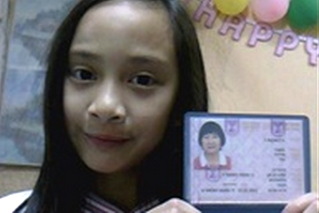
|
Counter-Terrorism Legislation vs. Democracy Counter-Terrorism Bill – 2011 Constitution, Law and Justice Committee Monday, 17/02/14 | Preparation for a Second & Third Reading
ACRI’s Position: ACRI naturally appreciates the importance of effectively combating terrorism. Preventing terrorist activities lies at the forefront of the state’s duty to protect its citizens, and it is appropriate that the state be granted significant powers to this end. However, the challenge in a democracy is to confront terrorism, while preserving human rights and fundamental democratic principles, which are the basis of a nation’s existence. This bill, in its current form, seeks to normalize, and in some cases aggravate, draconian emergency provisions and defence regulations dating back to the British Mandate. The broad and ambiguous definitions included within the bill and the wide-ranging powers it grants to authorities, creates a dangerous pattern where human rights considerations are disregarded.
|
|
Jerusalem: The Forgotten (Eastern) Neighbourhoods
The Absence of Municipal Services for Neighbourhoods Beyond the Separation Barrier Public Petitions Committee Wednesday 12/02/14 | Committee Discussion
ACRI’s Position: Eight metre high concrete walls separate several Palestinian neighbourhoods in North-East Jerusalem from the rest of the city. According to estimates, more than 50,000 residents are located within these neighbourhoods, which fall within the city’s municipal boundaries, and whose residents possess Israeli identity cards. However, in order to access the rest of their city and gain access to goods and services, these residents must every day pass through onerous checkpoints. |
|
Prison is Not a Place for Children
Alternatives to Detention for Children of Migrant Workers Committee on the Rights of the Child & the Committee on Foreign Workers Monday, 10/02/14 | Joint Committee Discussion
ACRI’s Position: In the past year, over 200 children of foreign workers and asylum-seekers have been imprisoned in Israel. This includes children waiting for a decision regarding their application for refugee status, children who can not be deported to their country of origin, children awaiting deportation, and more. ACRI believes that the variety of purposes for which children are imprisoned in Israel can be achieved through other, less harmful methods. Yet the detention of children has become the State’s default method in dealing with children without legal status, many of whom experience harsh conditions in detention and suffer devastating emotional effects. |
|
Students Dropping Out of School in East Jerusalem
Education, Culture & Sport Committee Monday, 10/02/14 | Committee Discussion
ACRI’s Position: Approximately 36% of children in East Jerusalem do not attend school, a percentage significantly higher than the national average. There are a broad variety of reasons for this statistic, but the key contributing factor is the failures of the various authorities – the Jerusalem municipality, the Ministry of Education and the Ministry of Social Affairs. A stark shortage of schools and educational institutions for all ages, the poor quality of principals and teaching staff, a serious lack of educational consultants, and poverty forcing students to leave school to help their families earn a living – all these are common factors that contribute to the high drop out rate, yet the various municipal and national authorities have failed to adequately confront them. In order to confront this phenomenon, the budgets for departments dealing with drop out rates in East Jerusalem neighbourhoods need to be substantially increased, lower targets need to set and multi-year, multi-discipline strategies need to be developed and enforced. |
|
In the Spotlight:
Finally – Residency to be Granted to 221 Children of Migrants Tuesday, February 10 On February 10, 2014, Interior Minister Gideon Sa’ar announced that the residency applications of 221 children of migrants would be granted. |








